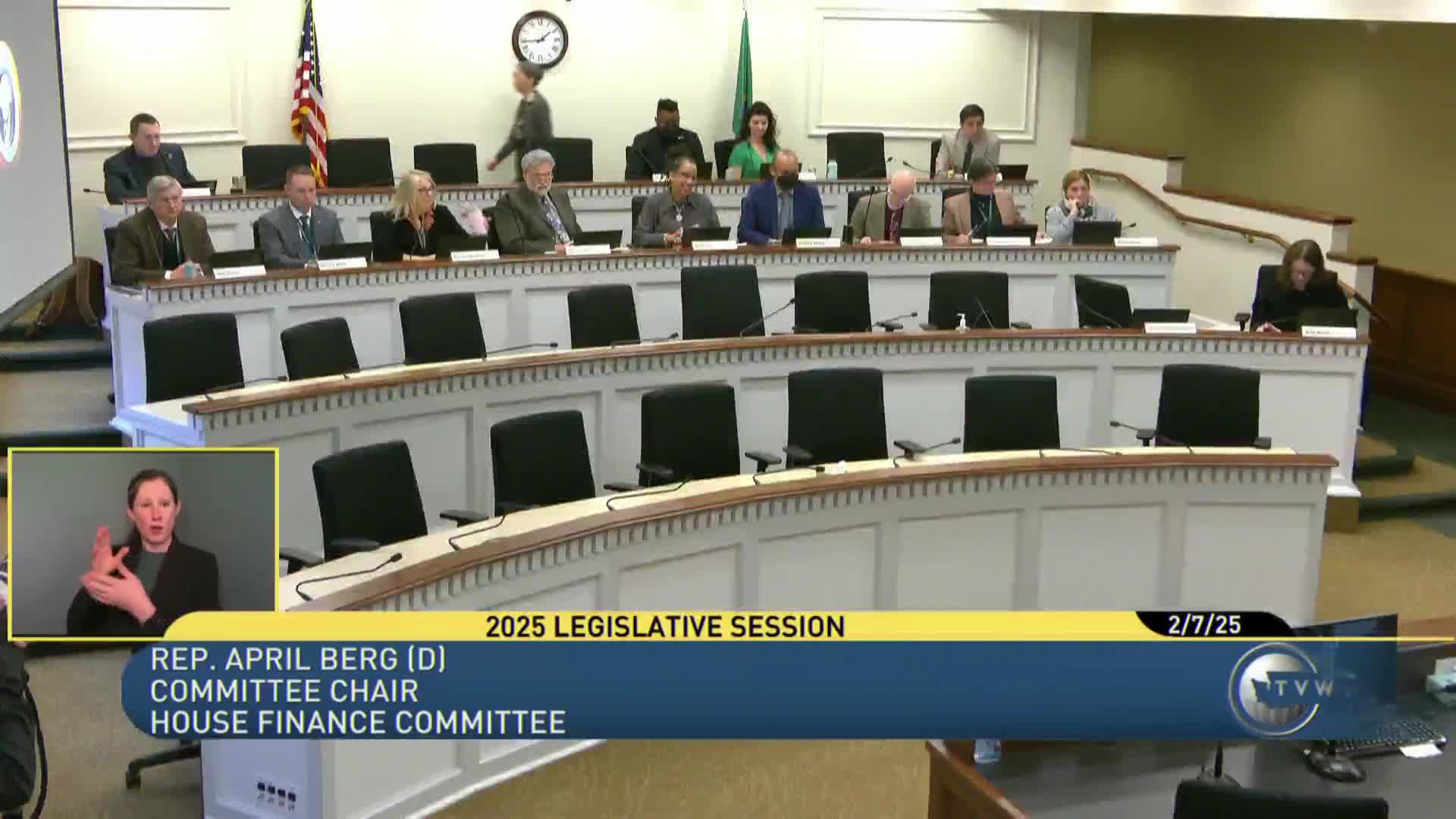Students and advocates urge sales-tax exemption for required college course materials
Get AI-powered insights, summaries, and transcripts
Subscribe
Summary
House Finance heard testimony Feb. 7 on House Bill 1751, which would exempt required course materials sold to enrolled students at institutions of higher education. Staff described eligibility rules and a preliminary fiscal estimate; dozens of students and student organizations testified in support.
House Finance on Feb. 7 held a public hearing on House Bill 1751, which would create a sales-and-use tax exemption for required course materials purchased by students enrolled at institutions of higher education.
Christina King, staff to the committee, described the bill’s eligibility requirements: the student must present valid student identification or other proof of student status and proof of enrollment in the course at the time of purchase; qualifying sellers include campus bookstores affiliated with the institution, online vendors designated by the institution, or other retailers that verify enrollment and course-material requirements. Institutions covered are state universities, regional universities, Evergreen State College, community colleges and technical colleges. The bill requires institutions to publish information about the exemption on official websites and in syllabi. King noted JLARC review, a tax-preference performance statement and a 90-day effective date (as drafted) and said a fiscal note had been requested.
Staff relayed preliminary DOR estimates: a projected state general-fund decrease of about $18.9 million in fiscal 2026 (10 months of collections) and $24.3 million in fiscal 2027 for a preliminary biennial total of roughly $43.3 million; local-government impacts were also listed. King said official fiscal materials were pending from OFM.
Representative Joe Timmons, the bill’s prime sponsor, said he introduced the measure to reduce costs that can disincentivize students from continuing their education. "Textbooks can be a high tax," Timmons said, recounting sample prices for introductory textbooks he found at several universities. Multiple students and student-organization representatives testified in support, including leaders and members of the Washington Student Association and high-school students who said running-start and dual-enrollment students face out-of-pocket course-material costs despite tuition arrangements. Student testimony included personal examples of quarters where required materials and lab supplies cost hundreds of dollars and cited a Washington State Institute for Public Policy estimate of average annual spending on required course materials.
Why it matters: staff presented eligibility and verification requirements intended to limit the exemption to enrolled students purchasing required materials, and a preliminary fiscal estimate shows a multimillion-dollar state impact. Supporters said the exemption would reduce barriers to higher education; committee members asked clarifying questions about scope and whether private colleges could be included in a later amendment.
Next steps: the committee received testimony from students, advocacy groups and staff; staff will await an official fiscal note from OFM/DOR. No committee action was taken Feb. 7.
